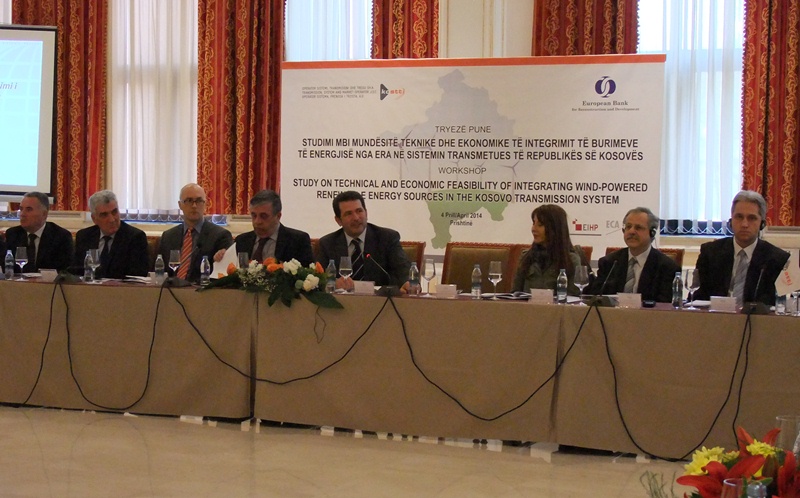RES, a priority of the Energy Strategy of Kosovo
Prishtina, 04.04.2014 – Renewable Energy Sources have been given a priority in the Energy Strategy of Kosovo, and our country is contributing significantly to the stability of its own, but also the regional, power system, said the Minister of Economic Development, Fadil Ismajli.
Ismajli made these comments from his workplace, where he presented the Study on Technical and Economic Opportunities for the Integration of Wind Renewable Energy in the transmission system of Kosovo, attended by representatives of the EBRD, KOSST, Hrvoje Pozar Energy Institute – Croatia, Economic Consulting Associates, UK, energy institutions and civil society.
Minister Ismajli considered this study a valuable contribution in moving forward in terms of building the research base that will serve the development of a stable electricity system, based on the principle of security of electricity supply.
“We have committed to implement the third energy package and to this end, this study opens ways to meet obligations in terms of renewable energy, as well as energy efficiency. We have adopted the Renewable Energy and Energy Efficiency Plans, which are in line with the commitments assumed by the third package or the 20-20-20 targets”, said Ismajli.
The head of the EBRD Office in Kosovo, Anton Kobakov, said that this study was supported by the direct investment initiative in energy systems, managed by EBRD, and was designed to financially support studies to increase investments in renewable energy systems in the region, including Kosovo.
“The technical assistance is specifically support by EU funds, various bilateral donors, the Government Norway, which both sponsors the technical assistance and also aims to further develop these sectors supporting investments in renewable energy, particularly offering loans for sustainable electricity projects”, said Kobakov.
Naim Bejtullahu, CEO of KOSTT, said that this study presents opportunities for the penetration of renewable sources, specifically wind turbines in the electricity transmission system of Kosovo, which is closely related to the technical ability of the transmission system without losing its economic affordability.
According to him, investments in RES, namely wind turbines, have a high cost and first we must verify the technical conditions and financial impact of the penetration of such sources.
Then, representatives of KOSTT, Energy Institute Hrvoje Pozar – Croatia, Economic Consulting Associates, UK, presented the Study on Technical and Economic Opportunities for the Integration of Wind Renewable Energy in the transmission system of Kosovo.

